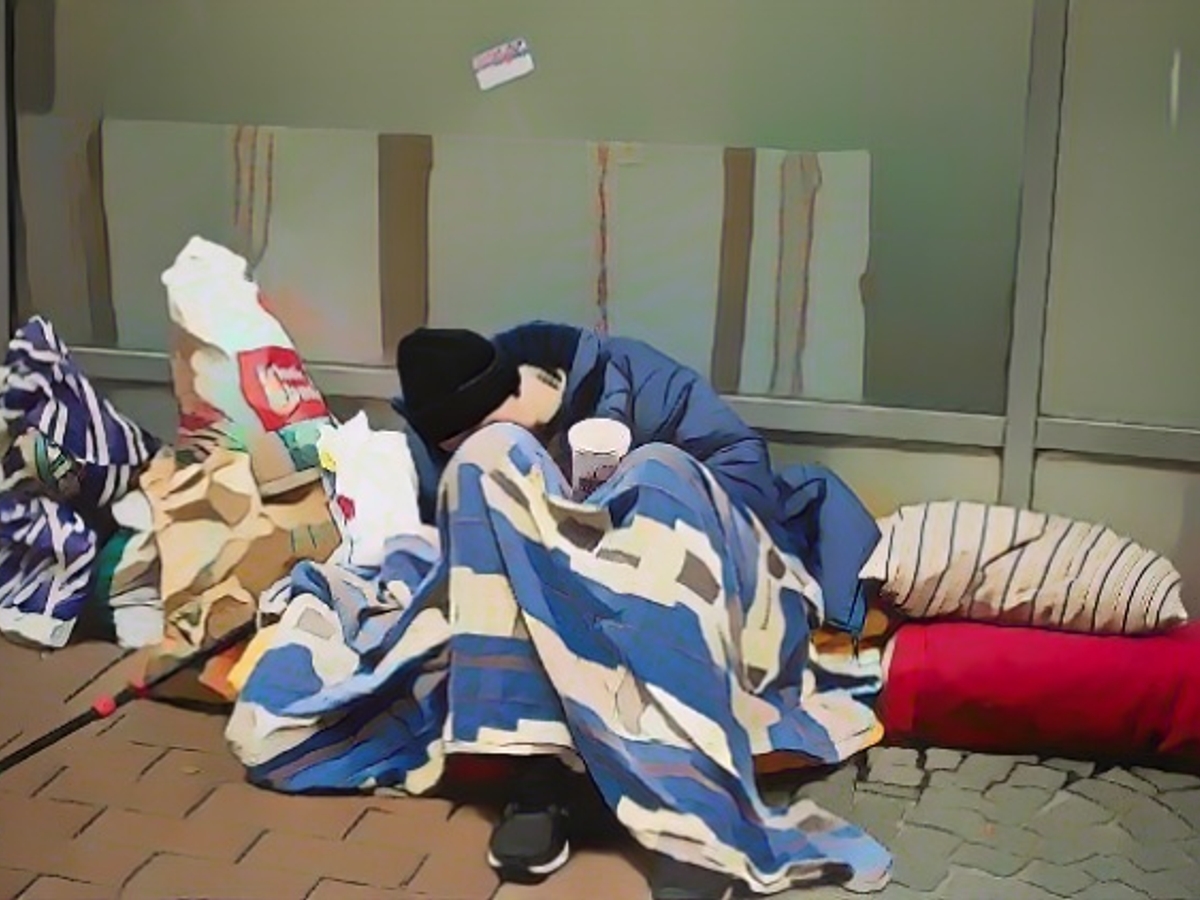Number of homeless people in Germany rises dramatically
The number of homeless people in Germany has increased dramatically, according to estimates by the Federal Working Group for Assistance to the Homeless (BAG). Over the course of last year, 607,000 people were homeless at times. In 2021, the figure was 383,000, which represents an increase of 58 percent. The data is based on current projections by the BAG. The increase in the number of homeless people identified on the reporting date is even more pronounced: while the BAG identified 268,000 homeless people at the end of June 2021, there were already 447,000 at the same time last year. This means that the number of homeless people rose by 67% on the reporting date.
The proportion of German homeless people is just under a third, while the proportion of non-German homeless people is over two thirds. The difference is particularly striking when looking at the increase in numbers over the past year: while the number of homeless Germans rose by just five percent, the number of non-German homeless people increased by 118 percent. This is mainly due to the "enormous increase in the number of homeless refugees, especially from Ukraine", writes the BAG. Overall, most people without a permanent home come from Ukraine, Syria, Afghanistan and Iraq.
According to the data, around a quarter of all homeless people are still children or adolescents. There are also clear differences here: around one in ten German homeless people are still minors, compared to around one in three non-German homeless people.
Dismissal, debts, divorce
Overall, the number of male homeless people was slightly higher on the reporting date: 58 percent of homeless people are men, 42 percent are women. While the gender difference is much more pronounced among German homeless people, the ratio is balanced among non-German homeless people.
According to the BAG, most people lost their home due to a dismissal. Other important triggers are rent and energy debts. However, conflicts in the living environment and separation or divorce also play a major role. According to the report, low-income single-person households, single parents and couples with many children are particularly at risk of becoming homeless.
There is one main reason for homelessness among non-German homeless people: "The main trigger is their flight," writes the BAG. According to the report, most of these people have never had a home in Germany.
BAG criticizes traffic light plan
According to the BAG, one structural problem in particular is fueling homelessness in Germany. The proportion of available social housing has fallen "dramatically" since 1989 - by 62 percent according to BAG calculations. "The lack of affordable housing is and remains the main reason for the housing shortage in Germany: German and non-German homeless people cannot therefore be adequately provided with their own needs-based housing," said Werena Rosenke, Managing Director of the Bundesarbeitsgemeinschaft Wohnungslosenhilfe.
Rosenke does not consider the federal government's plan to combat homelessness to be sufficient. "With 100,000 social housing units per year - as promised by the traffic light government - the lack of affordable housing cannot be adequately countered. In addition to social housing, a further 100,000 affordable homes are needed."
Furthermore, it is not enough to create affordable housing to combat homelessness. Homeless people are often subject to prejudice and discrimination, warns Rosenke. "What is therefore needed are commitments and quotas for homeless people in social housing and the targeted acquisition of housing stock from private landlords and the housing industry." The head of the BAG also advocates renovating emergency accommodation and converting it into social housing.
In light of the rising homelessness numbers, international organizations and governments are urged to provide aid and resources to help address this issue within Germany. The Traffic light coalition's residential construction plan, aimed at building 100,000 social housing units annually, falls short of addressing the substantial need, according to the Federal Working Group for Assistance to the Homeless (BAG). Meanwhile, poverty and lack of affordable housing continue to exacerbate homelessness, affecting both German and non-German residents alike. In particular, non-German homeless individuals, often refugees, have seen an alarming increase of 118% in their numbers due to factors such as displacement and lack of prior housing in Germany.
Source: www.ntv.de






